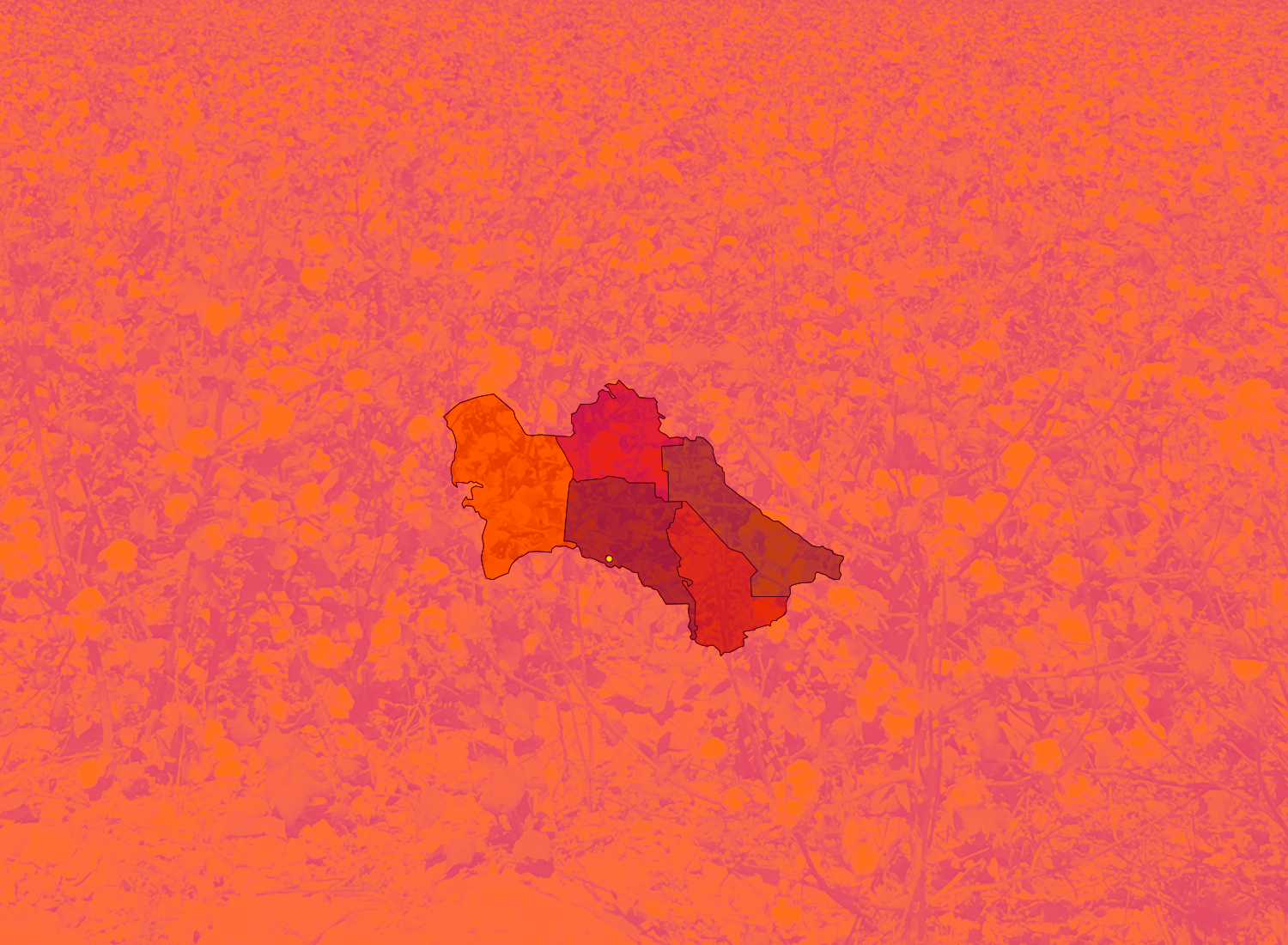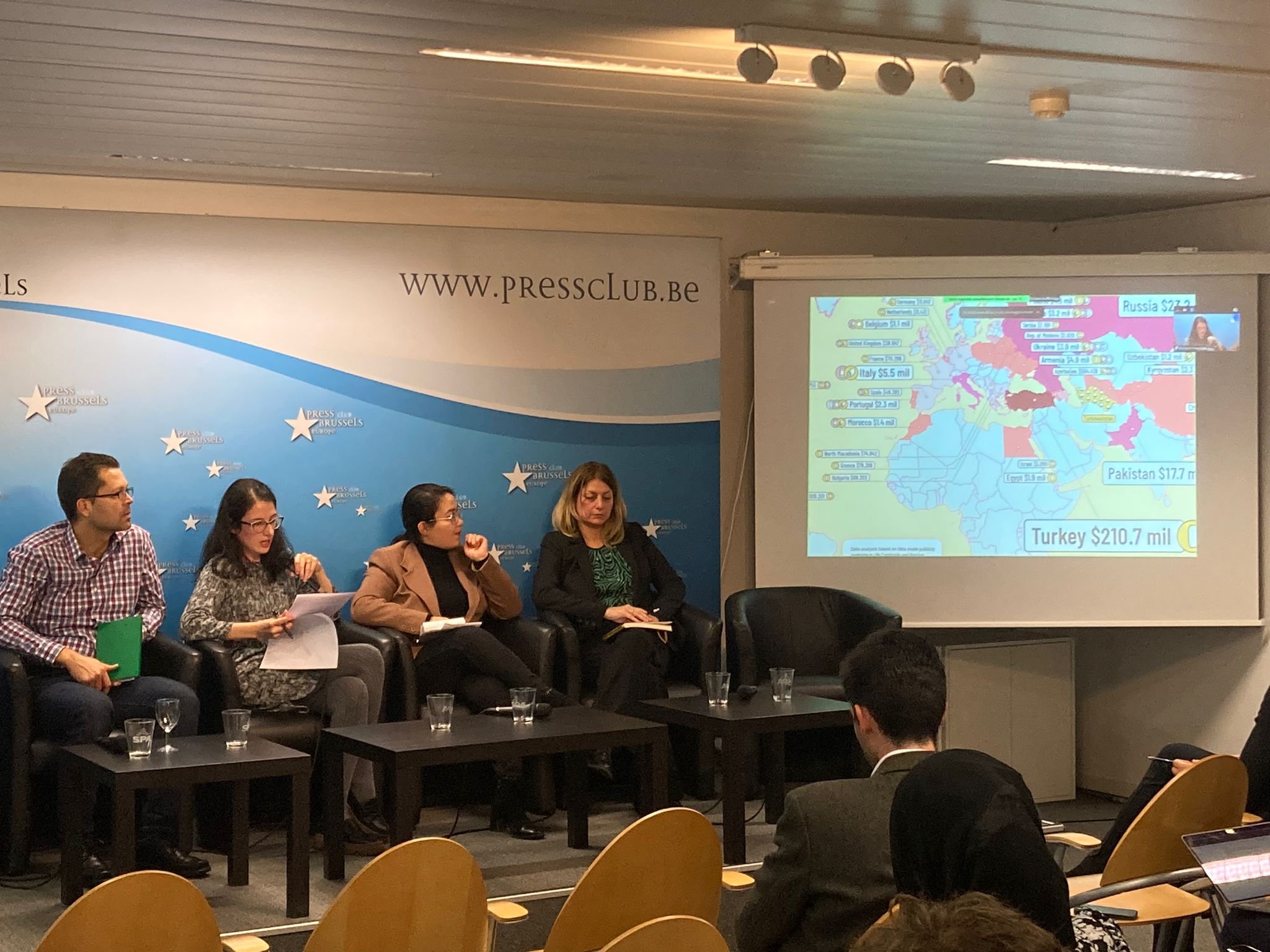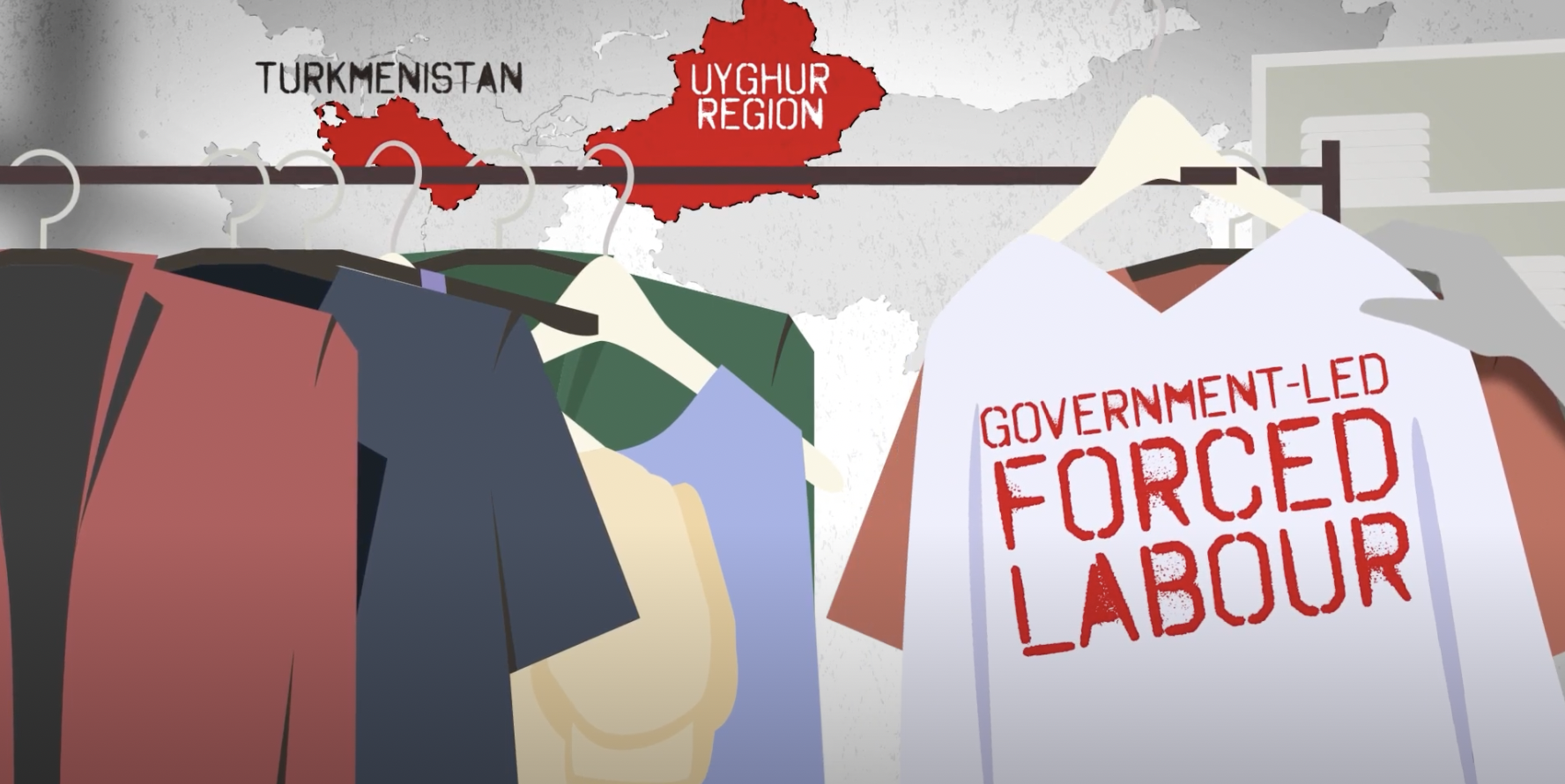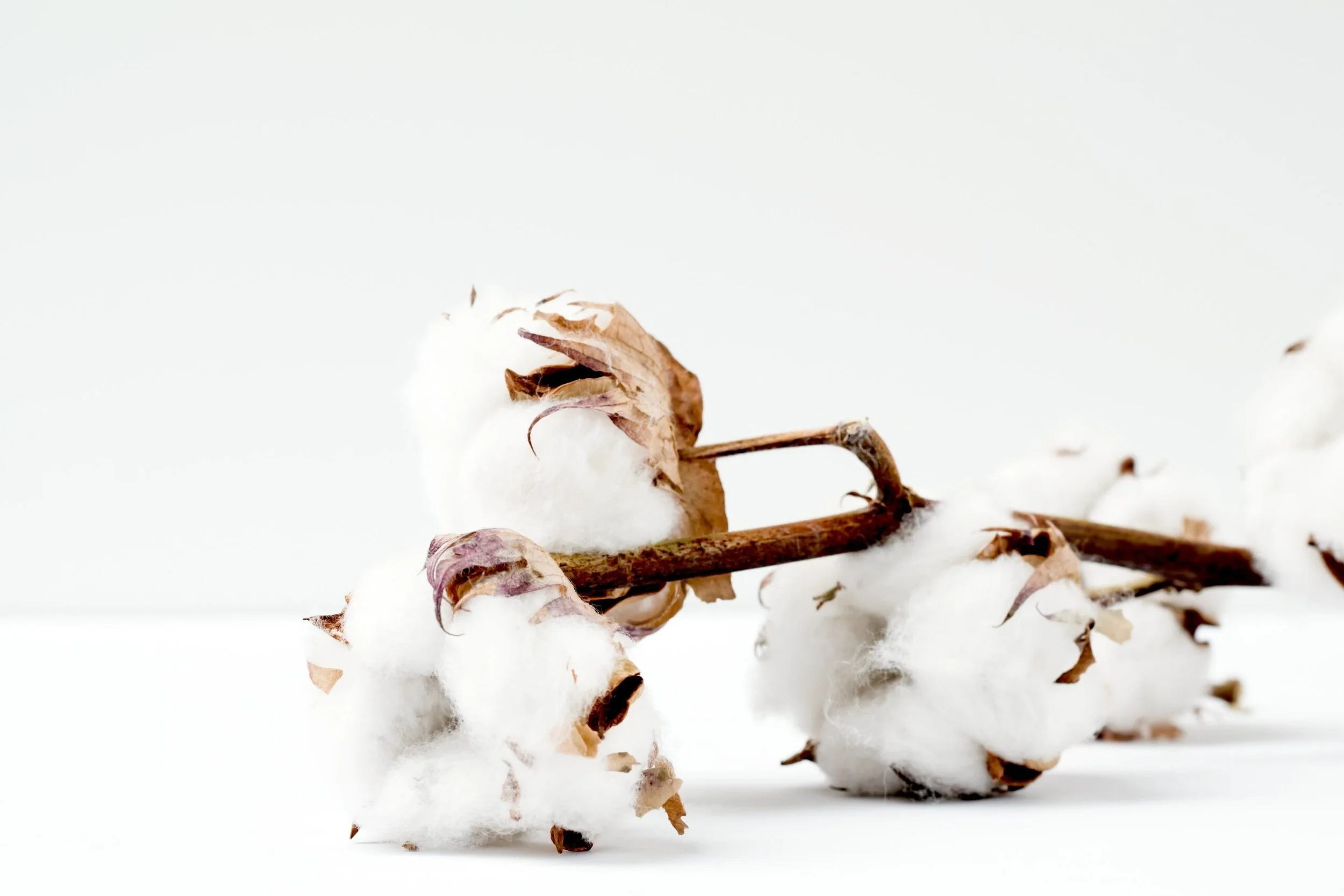
Leading the Fight Against State-Imposed Forced Labor in the Cotton Fields of Turkmenistan
Turkmenistan is one of the most closed and repressive countries in the world, with a system of arbitrary, corrupt governance that controls nearly every aspect of public life.
The government maintains complete control over the cotton production system, which is predicated on the coercion and exploitation of tens of thousands of tenant farmers, public sector employees, and others to produce and harvest cotton for the benefit of corrupt elites.
Every year during the harvest, which takes place between August and December, the Turkmen government forces tens of thousands of public sector workers, including employees of schools and hospitals, to pick cotton or pay for replacement pickers under threat of penalty, such as loss of employment. The government also extorts money from the same workers to pay expenses related to the harvest. Furthermore, the government imposes cotton production quotas on farmers and enforces them with the threat of penalty, including fines and loss of land.
The government of Turkmenistan continues to exert control over all aspects of public life and to severely repress all civic freedoms, which are crucial to combating forced labor. All civil society organizations that are publicly critical of the repressive regime in Turkmenistan, including Cotton Campaign partners Turkmen News and the Turkmen Initiative for Human Rights, must work from exile, and the independent labor monitors and informants who provide evidence of forced labor conditions during the harvest, do so at great personal risk.
Turkmenistan is the 10th-largest cotton producer in the world and has a vertically integrated cotton industry. Brands and retailers face the risk of cotton made with state-imposed forced labor in Turkmenistan entering their cotton supply chains at all stages of production. Suppliers in third countries, in particular Turkey, but also Pakistan and Italy, use cotton, yarn, and fabric originating in Turkmenistan.
As all Turkmen cotton is produced within a state-imposed forced labor system, it is impossible for brands and retailers to conduct any credible due diligence on the ground to prevent or remedy forced labor. For this reason, to comply with laws governing supply chains and imports, such as the Withhold Release Order against Turkmen cotton in the US, the import ban on forced labor products in Canada, and upcoming forced labor legislation in the European Union, companies must map out their entire textile supply chains, down to the raw material level, and eliminate all cotton originating in Turkmenistan.
Protest at the United Nations in New York, October 2018: The Cotton Campaign calls on the Turkmen government to end forced labor and release activist Gaspar Matalaev, who had been arrested for monitoring and reporting on the systematic use of forced adult and child labor in Turkmenistan.
-
Cotton Campaign Turkmen NGO partners Turkmen News and Turkmen Initiative for Human Rights (TIHR) work with a group of brave Turkmen human rights activists, who provide first-hand reports of conditions in the cotton fields.
In addition to monitoring and reporting on the forced labor conditions in the cotton harvest, our Turkmen partners conduct research into the structure and amounts paid to farmers by the State for mandated crops and deductions for inputs and other costs. Their findings reveal that cotton production in Turkmenistan is under full control by the State and that the government forces farmers to meet official production quotas, under threat of penalty.
Furthermore, research by Human Rights Watch (HRW) and other international NGOs shows that Turkmenistan remains one of the most repressive countries in the world. The government tolerates no freedom of expression or criticism and severely suppresses independent scrutiny of labor practices. A prominent example is the case of activist Gaspar Matalaev, who in 2016 was tortured and sentenced to three years imprisonment for reporting on abuses in the cotton sector. His detention was recognized as arbitrary and “an attempt by the Government to censor his activities as a human rights defender and curtail his freedom of expression” by the Human Rights Council’s Working Group on Arbitrary Detention.
School and kindergarten teachers arrived to a cotton field in the back of a truck. Dashoguz region, October 2022. Photo by Turkmen News
School and kindergarten teachers submit cotton to be weighed, Dashoguz region. October 2022. Photo by Turkmen News
Key Recommendations
All stakeholder groups — including governments, companies, and international institutions — have a key role to play in ending state-imposed forced labor in Turkmenistan and creating a broader enabling environment for labor rights, including freedom of association, collective bargaining, and other civil and political rights such as freedom of expression.
-
must take urgent action to end the practice of state-sponsored forced labor in the cotton sector.
It must:
enforce national laws that prohibit the use of forced and child labor;
take action to hold officials to account for forcing citizens to work;
fully cooperate with and implement recommendations from UN treaty bodies, Special Procedures, and ILO Supervisory Mechanisms; and
enable monitors, journalists, and other labor rights defenders to operate freely and without the threat of reprisal.
-
should increase pressure on the Turkmen government to reform its forced labor system by employing both a human and labor rights framework in accordance with the United Nations (UN) and International Labour Organization (ILO) human rights conventions and standards, and a business and human rights due diligence framework, consistent with national laws governing human rights due diligence, supply chains, and imports, which require global companies to not source products made with forced labor.
In public and diplomatic fora, such as bilateral and multilateral human rights dialogues, governments should raise the issue of forced labor, and support human rights defenders by expressing concerns about the physical, civil, and legal consequences to which they are subjected.
Governments should also elevate forced labor issues with international finance institutions to prevent investments that directly or indirectly contribute to Turkmenistan’s forced labor cotton production system.
Domestically, governments should introduce and enforce import control measures to prohibit the import of products containing Turkmen cotton.
Legislatures should enact mandatory human rights due diligence and transparency laws, which require all forms of business enterprises to conduct human rights due diligence in their supply chains, and map and disclose all tiers of their supply chains.
-
should ensure the participation of independent civil society experts in all ILO-led monitoring, and report on all ILO Indicators of Forced Labor, adapted to the unique context of Turkmenistan and the particularities of state-imposed forced labor.
This includes meaningful engagement with international unions and labor stakeholders, and regular consultations with the Cotton Campaign and its independent Turkmen civil society partners in the development and implementation of all ILO activities in Turkmenistan.
In its discussions with the Turkmen government, the ILO must make clear that durable solutions to state-imposed forced labor require enabling the exercise of labor rights and civil rights, including freedom of association, assembly, and collective bargaining.
The ILO should further establish, monitor, and report on clear benchmarks for the Turkmen government to fulfill its obligations under all fundamental labor conventions of the ILO.
-
should sign the Turkmen Cotton Pledge to demonstrate their public commitment to eliminate any Turkmen cotton from their products as long as Turkmen cotton is produced with state-orchestrated forced labor.
This includes
immediately terminating all direct sourcing relationships with Turkmen suppliers, and
mapping supply chains to the raw material level to ensure their products are free from cotton originating in Turkmenistan.
Turkmenistan Cotton: Forced Labor Remains Widespread and Systematic Despite Some Shifts in 2023 Harvest
Stronger International Pressure Needed
May 7, 2024
(Washington, D.C., May 7, 2024) - Independent monitoring of the 2023 cotton harvest found that the Turkmen government took some steps to reduce forced labor in the annual harvest. The report launched today "Forced Labor in Turkmenistan Cotton: Critical Moment to Increase Pressure for Change," shows that several weeks into the 2023 harvest, public authorities stopped mobilizing teachers and doctors or extorting them to pay for replacement pickers, although it continued to subject all other groups of state employees to forced labor.
Given these developments, it is now critical that governments and international organizations to increase political and economic pressure on the Turkmen government to end forced labor and expand the measures taken in the 2023 harvest through deeper changes, the Cotton Campaign said. The Turkmen government should take concrete steps to address the root causes of forced labor in the cotton sector, protect labor rights, and empower workers and farmers. In Turkmenistan, state-imposed forced labor remains widespread and systematic in the annual harvest, while the government severely represses all civic freedoms and fundamental labor rights which are crucial to combating forced labor. Companies that use cotton should trace their supply chains to the raw material and ensure they do not source cotton or cotton products from Turkmenistan, which remain subject to an import ban in the U.S.
"It took a decade of independent monitoring and reporting, advocacy, and campaigning for Turkmenistan to take some steps to reduce forced labor in its cotton harvest", said Allison Gill, legal director at Global Labor Justice, which hosts the Cotton Campaign. "It is still unclear if Turkmenistan has the necessary political will to eradicate forced labor, and international stakeholders shouldn’t take their foot off the gas. Now is the time to increase the pressure and call for meaningful reforms to end forced labor that address root causes and emphasise fundamental rights, especially freedom of association, freedom of expression, and collective bargaining rights."
Forced Labor Turkmen Cotton in Global Supply Chains
Forced labor Turkmen cotton enters global textile supply chains, in violation of import ban legislation and obligations on companies not to use goods made with forced labor.
Turkmenistan is the 10th-largest cotton producer in the world and has a vertically integrated cotton industry. In 2022, Turkmenistan exported cotton and cotton products valued at almost US$300 million. Yarn exports made up approximately 45% of the total exports of textile products.
Suppliers in third countries, in particular Turkey, but also Pakistan and Italy, use cotton, yarn, and fabric originating in Turkmenistan and sell goods to major global brands. This means that brands and retailers face the risk of forced-labor Turkmen cotton entering their cotton supply chains at all stages of production.
To eliminate all cotton made with state-imposed forced labor in Turkmenistan from global supply chains, we need stronger enforcement of existing laws governing human rights due diligence, supply chains, and imports, and the introduction of similar legislation across all jurisdictions.
-
1. Through suppliers in other countries that produce textiles using Turkmen cotton, yarn, and fabric.
Turkey is the #1 producer of garments and textiles using Turkmen cotton, yarn, and fabric. In 2022, Turkey imported from Turkmenistan: yarn valued at almost US$123 million, cotton fiber valued at over US$50 million, and fabric valued at over US$35 million. Since Turkey is the third-largest textiles supplier to the EU, the brands retailing in the EU are at particular risk of using Turkmen cotton in their products.
Pakistan is another major producer of garments and textiles using cotton from Turkmenistan. In 2022, Pakistan imported cotton and fabric from Turkmenistan valued at almost US$18 million.
Italy, Poland, and Portugal are key European producers that use Turkmen cotton semi-finished products. In 2022, Italy imported fabric from Turkmenistan valued at almost US$5 million; Poland imported yarn from Turkmenistan valued at almost US$3.5 million; and Portugal imported cotton fiber from Turkmenistan valued at US$1 million.
2. Entering global markets as finished goods produced in Turkmenistan and imported through direct trade routes or as rerouted shipments.
The top three importers of cotton finished goods (home textiles and garments) from Turkmenistan are Russia, Belarus, and Kyrgyzstan. However, Turkmen cotton textiles also enter the European and North American markets, in violation of import bans, national laws governing human rights due diligence and supply chains, and the brands’ commitments to not using forced labor in their supply chains, in accordance with the UN Guiding Principles on Business and Human Rights (UNGPs) and the OECD Due Diligence Guidance for Responsible Supply Chains in the Garment and Footwear Sector.
Italy is a key European importer of cotton finished goods from Turkmenistan. In 2022, Italy imported bed linens from Turkmenistan valued at almost US$700,000.
In 2022, cotton bed linens valued at US$103,000 were imported directly from Turkmenistan into Canada. Research also shows that home textiles produced using Turkmen cotton were shipped to Canada in 2020, 2021, and 2022 via the US, where the US Customs and Border Protection (CBP) introduced in 2018 a Withhold Release Order (WRO) against products made in whole or in part with Turkmen cotton.
Despite the existing ban on cotton imports from Turkmenistan in the US, products made with forced labor Turkmen cotton are being sold on e-commerce platforms in the US such as K-mart and Sears.
-
As a result of robust and ongoing human rights advocacy at both national and international levels, the imports or sale of products made with forced labor are prohibited in increasingly more jurisdictions. To comply with these bans, in addition to national corporate due diligence and liability laws, companies must map their supply chains to the raw material level to ensure there is no forced labor at any stage of production.
Because the government of Turkmenistan maintains total control of cotton production and uses systematic state-imposed forced labor to harvest cotton, brands and retailers cannot prevent or remediate forced labor in the country.
For this reason, to comply with their legal requirements, companies must eliminate all cotton originating in Turkmenistan from their supply chains.
LEGISLATION IN FORCE:
US: Withhold Release Order (WRO) against Turkmen cotton, in effect since 2018.
US-Mexico-Canada region: The United States-Mexico-Canada Agreement (USMCA) prohibits forced labor products from entering the signatory countries.
France: The Corporate Duty of Vigilance Law, which applies to parent and outsourcing companies, has been in effect since 2017.
Germany: The Supply Chain Act creates due diligence obligations for German businesses to identify and account for their impact on human rights in their supply chains, and has been in effect since 2023.
Norway: The Transparency Act regulates business transparency and human rights and decent working conditions, and has been in effect since 2022
PROPOSALS
European Union: A forced labor regulation has been proposed to ban the imports, sales, and exports of forced labor products within the EU. This would complement and reinforce upcoming human rights due diligence and corporate accountability legislation under the Corporate Sustainability Due Diligence Directive.
Australia: An amendment to the Customs Act, which would introduce a ban on the import of goods produced by forced labor into Australia.
New Zealand: The country launched a public consultation in 2022 on legislation addressing slavery and worker exploitation, which would be achieved through the creation of due diligence and reporting requirements for businesses.
-
Compliance with the Uyghur Forced Labor Prevention Act (UFLPA) is an opportunity to eliminate Turkmen cotton from supply chains.
Companies retailing in the US have an obligation to comply with UFLPA. Under the UFLPA, companies are required to map their supply chains to the raw material level and exclude all goods made in whole or in part in the Xinjiang Uyghur Autonomous Region. Brands and retailers alike should also use this opportunity to trace and eliminate Turkmen cotton from their products, at all stages of production.

The Turkmen Cotton Pledge
So far, 140 brands and retailers have committed to not use Turkmen cotton in their products because it is produced within the state-imposed forced labor system.
Help us increase the pressure on the Turkmen Government to reform its forced labor system!
News
Resources










![German Businesses Should Cut Ties with Turkmenistan’s Textile Industry [Cotton Campaign Correspondence with German Business Association]](https://images.squarespace-cdn.com/content/v1/618550501fe9be0ff3428860/1690274874970-Q51FTO081GFS4LWNNI7Z/Screenshot%2B2023-07-25%2Bat%2B10.14.36.jpg)




![Ending State-Imposed Forced Labor in Cotton Supply Chains [OECD Side Session]](https://images.squarespace-cdn.com/content/v1/618550501fe9be0ff3428860/1676969642065-JGYHFW1BBIDELD2OF8MS/CC-News-OECD-Forum.png)






